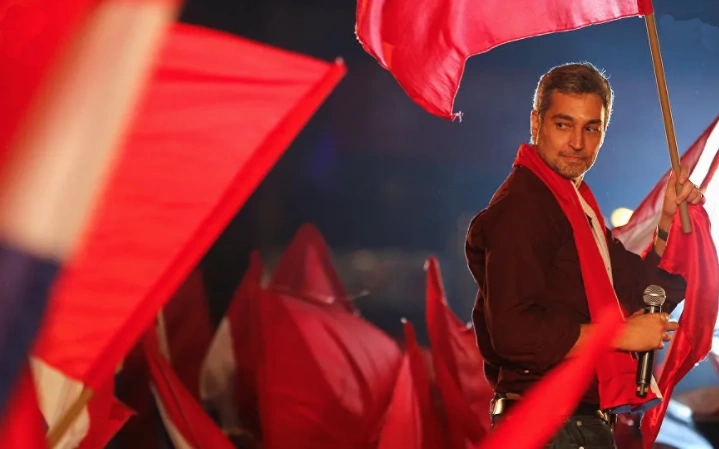According to a recently published study by The Economist, Democracy is on the verge of collapse. Although the deterioration is generalized worldwide, Latin American countries have suffered an evident setback. When comparing the Democratic Index values for 2021 with those of two years ago, only Uruguay has made any progress. The decline is higher than 0.50 (on a scale of zero to ten) in seven countries: Colombia, Peru, Ecuador, Mexico, Guatemala, Nicaragua, and Venezuela. In Paraguay and El Salvador, the decline is 0.38 and 0.43 respectively. Half of the countries in the region have seen their performance undermined in the categories that make up the aforementioned index relating to elections and pluralism, the functioning of government, political participation, political culture, and civil liberties.
It is well known that one way to test the “maturity” of a representative democracy is to measure its capacity to guarantee that the opposition has an adequate level of certainty of being able to rule and form a government at some point. In terms of probabilities this means that ideally this situation should occur one out of two times, thus obtaining a probability of 50%. As this is a probabilistic question, this ideal level would be reached as more occasions (elections) occur. In the eighteen Latin American countries usually taken into consideration, from 1978 to the present, 150 presidential elections have been held in which the outgoing government could defend their incumbency. These government successfully did so in 63 elections. In other words, in the other 87 electoral processes there was a rotation of political parties, or to put it differently, the probability of this occurring was 0.58.
This circumstance has been emphasized as evidence of the consolidation of democracy in the region over the last four decades. However, it should be noted that this is an average value and that there are countries with extreme behavior such as Nicaragua, Paraguay, and Venezuela, which have a very low level of political alternation. On the opposite side, Guatemala and Panama, with permanent alternation (1) and Ecuador and Peru with high alternation (0.75 and 0.78 respectively).
The situation has changed drastically in the last four years. In fact, if we consider the last presidential elections held in 16 countries (I leave Nicaragua and Venezuela out of consideration for having held elections that are not comparable in democratic terms), there has only been no political alternation in Bolivia, where the MAS won the elections after the interim government, and in Paraguay, where the Colorado party won the presidential elections again.
The fact that the groups in power did not manage to stay in power, and that the door was opened to opposition forces can be explained by the cost that governments have had to pay for the management of the pandemic. They are blamed by their populations, who are exhausted by widespread economic deterioration that has, in turn, increased impoverishment and inequality. They are equally as exhausted by the psychological wear generated because of uncertainty about the future, and by their government’s often-bad communication policy that is compounded by a huge wave of disinformation.
However, there are factors that have been generated within each country that have had a considerable impact in bringing about a shift in popular opinion against the outgoing government. These factors have similar common denominators that for some time now have evidenced a clear situation of fatigue derived from the combination of the existing malaise among citizens and the crisis of political representation that continues to deepen.
There is ample evidence to link the malaise to four aspects: inequality, corruption, and violence, which have deteriorated living conditions enormously, and the frustration of unmet expectations. As for the crisis of representation, this is centered on the hyper-personalism of politics as a result of the changes that have taken place in societies over the last two decades.
The political struggle in institutional frameworks defined by presidentialism has been drifting towards the empowerment of candidates backed by parties that are barely acronyms with a very low level of membership, a programmatic proposal that is articulated in half a dozen empty phrases, and an organizational structure reduced to minimum levels. Instead, these candidates rely on strategies of a digital nature that are based on artificial intelligence processes to address social networks to be successful in electoral campaigns. In the best of situations, the candidacies weave alliances with others in a confederal spiral to obtain greater returns in the electoral competition.
At present, there are three cases that merit attention as reflections of the above. In the Chilean presidential elections held last November, a candidate, Franco Parisi, obtained 12.8% of the votes in the first round, which earned him third place. This is without garnering the support of a political party that is physically located in the country. Instead, he has been running his campaign digitally for the entire process.
On the other hand, in Colombia, the candidate Rodolfo Hernandez, whose party does not even conceive itself as a political party, has 14% of potential votes, which would mean he would be set to secure second place. His party has also announced that his campaign will be completely virtual.
Finally, Rodrigo Chaves in Costa Rica has made it to the second round of voting that will be held on April 3, having obtained second place in the first round with 16.7% of the votes. Once again, he is a candidate supported by a marginal party which is the third one in which he has been a member in the last three years.
The existing scenario validates the existence of a certain ease with which individuals can come to power outside of the traditional logic of doing so through the support of institutionalized political parties that are endowed with a minimum capacity to fulfill certain functions that were considered essential, such as articulating preferences or serving as a recruitment and training channel for those who wanted to engage in politics.
In this way, alternation ceases to have the meaning once conferred on it, as it gradually enters into a game of individualism so extreme that it becomes meaningless. Representation, therefore, is fragmented to extreme levels and people’s preferences are left to chance, at least, if not to projects meticulously designed by communication experts who accompany a candidate’s personal drive for power.
Translated from Spanish by Alek Langford












